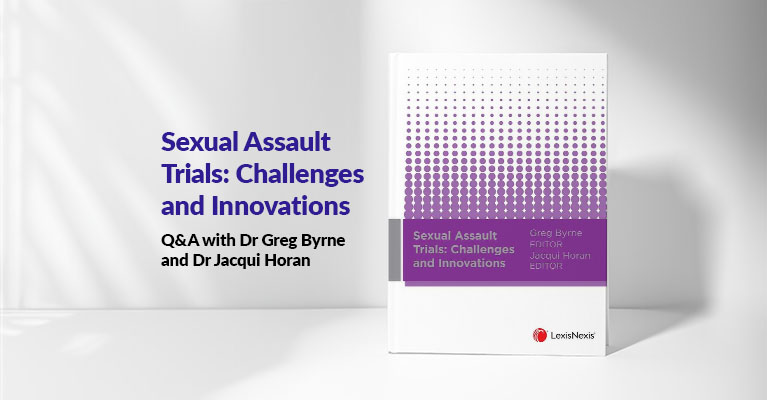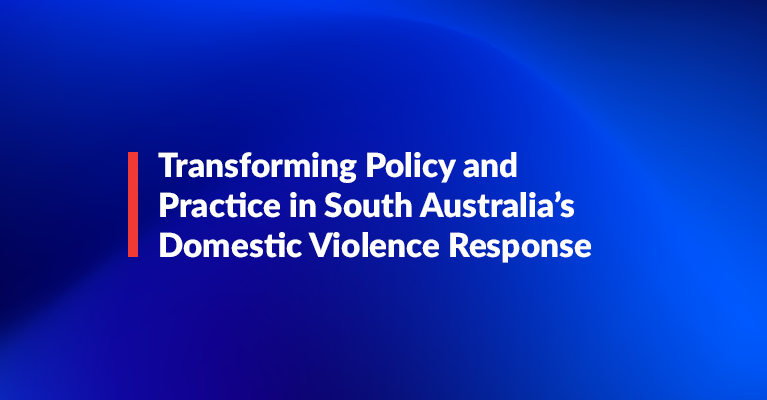Capital Monitor™ Editorial by Keely Garcia A single week in November 2023 saw four women lose their lives in South Australia amid domestic and family violence, an alarming record across any Australian...
Artificial intelligence is transforming the legal industry, there’s no doubt about that, but the conversation is shifting from chatbots and generative AI to something far more powerful: agentic AI. The...
In today’s fast-paced legal environment, the pressure to produce high-quality work quickly is intensifying. Yet, the very digital tools meant to boost productivity are often doing the opposite. Lawyers...
Companion animals now recognised as more than property in family law decisions. On 10 June 2025, major reforms to Australia’s Family Law Act 1975 (Cth) came into effect. For the first time, Australian...
Australian lawyers have a reputation for being pragmatic; and this trait shows when the conversation turns to artificial intelligence. There’s no blind rush to adopt the latest shiny tool, no “AI or...

Q&A with Dr Greg Byrne and Dr Jacqui Horan
Sexual Assault Trials: Challenges and Innovations offers a comprehensive examination of the systemic issues in sexual assault trials across common law jurisdictions, presenting innovative research and solutions to enhance victim experiences and improve justice outcomes.
We took the opportunity to ask Dr Greg Byrne and Dr Jacqui Horan a few questions about the book.
Q: What inspired you to write this book?
A: The effectiveness of reforms to sexual assault trials has been limited and more must be done.
To engender discussion and change, Jacqueline Horan, together with the Monash University Law Faculty and the ‘Courts of the Future Network’ hosted a conference in Melbourne on 9 June 2023. The presentation and the discussion from the audience was rich. Most of the chapters began as ten-minute presentations at the conference. Given the topics discussed and the participation of victim-survivors, the conference was not streamed or recorded.
We wanted to develop the ideas discussed at the conference and make the ideas of the presenters available to a wider audience. We decided that a book was the best way of doing so.
Q: What struck you about the many changes proposed in your book?
A: Sexual assault trials have changed significantly in recent years. This includes changes to evidence laws, sexual offence laws, and trial procedures. Despite significant reviews by law reform commissions, there is so much that still needs to be improved. The range of opportunities to improve sexual assault trials discussed in our book demonstrates the complexity of the criminal justice system and the need to consider how it works from multiple perspectives.
Sexual offence laws and trials are complicated. In addition to understanding the law and criminal procedure, it involves understanding of how memory works, victims' rights, and how jurors think (eg to minimise the risk of the ‘detective juror’, and how to help jurors decide cases without relying on rape myths). This requires lawyers and judges to develop skills and knowledge that go well beyond typical training in the law.
Q: Do you discuss what victim-survivors need from the criminal justice system?
A: Too often, victim-survivors are further traumatised by engaging with the criminal justice system. They deserve better. As discussed in our book, this starts from the time they first report a crime the police. Police need support and training. The justice system must be responsive to the needs of victims-survivors, recognise victim’s rights, and provide better mechanisms for victims to enforce their rights including legal representation in some court proceedings.
Q: How do you envision the future of sexual assault trials evolving?
A: Our book examines many potential innovations to sexual assault trials. This starts with recognising victim-survivors’ human rights to be protected from trauma by engaging with the justice system. This involves improvements from the time a victim-survivor reports the police and throughout the trial process. The ethical standards applying to the questioning of victim-survivors should be improved. Lawyers, judges, and juries need to understand how memory works when victim-survivors give evidence. Witness protection should be available and work harmoniously. Courts need to manage the risk of mistrials where jurors become ‘detectives’ when they misunderstand their role. And we need more effective strategies to combat the influence of rape myths on jury deliberations and assist jurors with understanding what it means to prove something ‘beyond reasonable doubt’.
Q: What role do you see for legal practitioners, police, and policymakers in implementing change?
A: As our knowledge of victim-survivors and their needs improves, the justice system must change. Changing the culture of the legal system is difficult and requires continued effort. Change in the criminal justice system is usually incremental. It depends upon many people, including judges, lawyers, and police. This requires leadership and continued effort from all courts and agencies involved in the justice system.
Q: Are there any case studies or examples in your book that you find especially compelling or illustrative?
A: The case study featured in chapter 2 illustrates how police and academic collaborations can produce online training modules about sexual violence that are better able to ensure that a large first responder organisation can offer their employees useful training in an easily accessible format. While face-to-face training is effective, it can be expensive and difficult to offer such training to a large and changing workforce in geographically large countries like Australia. Chapter 2 highlights the untapped potential for online training approaches that may help to alleviate logistical and operational constraints faced by policing agencies throughout the world.
Knowing what jurors think is critical to ensuring a fair trial. Chapter 10 provides unique insights into jurors’ use of rape myths in adult sexual assault trials. Research with actual jurors in the way conducted in Aotearoa New Zealand would not be permissible in Australia and many other common law countries. The research in this chapter demonstrates why more jury research should be permissible and conducted.
ABOUT THE BOOK
Sexual Assault Trials: Challenges and Innovations is an in-depth exploration of the justice system's response to sexual assault. There is no other book that contains such a wide-range of contemporary research on sexual assault trials, It features the work of a multidisciplinary team of highly experienced practitioners and researchers. The diverse authorship reflects the need to examine issues from multiple perspectives. Compelling ideas are presented for the courts, governments, legal practitioners, police, criminal justice researchers, and teachers to analyse with a view to challenging and improving current practices.
Available for purchase here.
ABOUT THE AUTHORS
Dr Greg Byrne is an experienced criminal law policy adviser, has led significant criminal law reforms in Victoria, and is an independent legal policy adviser and sessional academic at Monash University.
Dr Jacqui Horan is an experienced courtroom researcher. She holds the position of Associate Professor of Criminal Law at Monash University and is a member of the Victorian Bar (academic).




